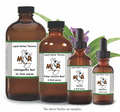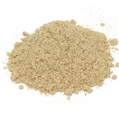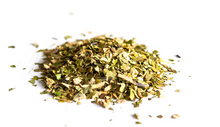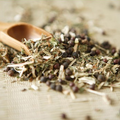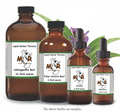 Loading... Please wait...
Loading... Please wait...- Home
- Herbal Teas
- Medicinal Remedy Teas
- Pre-Menopause Aide Herbal Tea
- Home
- Herbal Teas
- Teas for Women
- Pre-Menopause Aide Herbal Tea
Pre-Menopause Aide Herbal Tea
Product Description
Pre Menopause Herbal Tea
Going Mad in Pre-menopause?
The transition to menopause can be a time of reflection and inspiration. Although transitions of any kind can be inherently difficult, many women experience a newfound sense of freedom and anticipate personal growth.
"Menopause is a time of great change -- it is the adolescence of older age but better than adolescence of youth because menopausal women have confidence and experience."
"It is definitely a time of choice and should really be about finding out what you really want. It is a time to take charge and shape the remaining chapters of your life."
The attitude with which you embark upon this transition can have a tremendous impact on your experience of it, as well as on your choice of behaviors. Studies bear this out: negative beliefs held prior to menopause can be predictive of a more difficult time. For instance, the more catastrophic your thoughts about hot flashes, the more intense they will be. Depression during menopause is not uncommon.
More recently, it has also been shown that changing those negative thoughts and attitudes can result in a reduction of symptoms. Even in the face of difficult symptoms, women consistently say that changing their outlook helps. The following tips can help you transform your menopause experience.
Mood swings, short-term memory loss, and difficulty thinking straight are common complaints from midlife women. However, while many of these symptoms are attributed to menopause, there are other contributing factors to consider as well.
Hormones: During reproductive years, most women become accustomed to their own hormonal rhythm. When this rhythm is disrupted during perimenopause, mood changes may result.
Timing: The timing of menopause may coincide with a multitude of midlife stresses like relationship issues, divorce or widowhood, care of young children, struggles with adolescents, return of grown children to the home, being childless, concerns about aging parents and caregiving responsibilities, as well as career and education issues.
Aging: Getting older in a society that values youth can be very demoralizing. Midlife women often experience changes in self-esteem and body image. Women may begin to consider their own mortality and dwell on the meaning or purpose of their lives.
Although achieving optimal mental and physical health requires individualized solutions, the following suggestions have been helpful for many women.
Create balance: When dividing time between work obligations and caring for family, women need to remember that taking care of their own needs is equally important. With the onset of new tensions, recognizing a problem can lead to understanding its causes and developing new coping mechanisms. Keeping a balance between self, family, friends, and work allows women to meet new challenges and maintain self-confidence.
Evaluate levels of depression: Women who have previously been diagnosed with depression when they were younger are vulnerable to recurrent depression during pre-menopause. Women suffering from depression (which is associated with a chemical imbalance in the brain) report symptoms of prolonged tiredness, loss of interest in normal activities, weight loss, sadness, or irritability. Treatments range from herbal remedies such as St. John's wort for mild to moderate depression to prescription medications or talk therapy for various levels of depression.
Assess anxiety level: Physical and psychological changes as well as other midlife stressors can result in increased anxiety. Feelings of anticipation, dread, or fear are common and usually resolve without treatment. Frequent episodes of anxiety may be a warning sign of panic disorder. "Panic attack" symptoms include shortness of breath, chest pain, dizziness, heart palpitations, or feelings of "going crazy" or feeling out of control. Sometimes the unsettling feelings that precede a hot flash can mimic or trigger such an attack. Treatments include relaxation or stress reduction techniques, counseling or psychotherapy, and/or prescription drugs.
Mind your memory: Many pre-menopausal women report difficulty concentrating or short-term memory problems. These difficulties often frighten women, who may think they have early symptoms of Alzheimer's disease. While this is rarely the case, studies suggest that remaining physically, socially, and mentally active may help prevent memory loss.
This herbal tea includes the following herbs:
Black Cohosh - will help reduce the intensity and the duration of hot flashes. It may also ease painful cramping associated with heavy menstrual periods, which some women experience during menopause. The PDR for Herbal Medicines attributes this benefit to black cohosh’s potential ability to relax uterine tissue.
Chasteberry - Will reduce hot flashes and control excessive menstrual bleeding. In addition, chasteberry tea may boost your mood if you suffer mild depression related to menopause.
Raspberry Leaf - Will help normalize a hormone imbalance and offer relief from general symptoms associated with menopause.
Dong Quai - (Angelica sinensis) Dong quai has been used in Traditional Chinese Medicine to treat gynecologic conditions for more than 1,200 years. Yet only one randomized clinical study of dong quai has been conducted to determine its effects on hot flashes, and this botanical therapy was not found to be useful in reducing them. Some experts on Chinese medicine point out that the preparation studied was not the same as they use in practice. Dong quai should never be used by women with fibroids or blood-clotting problems such as hemophilia, or by women taking drugs that affect clotting such as warfarin (Coumadin) as bleeding complications can result.
Kava Kava (Piper methysticum) Kava decreases anxiety.
St. John’s Wort - Among the most popular herbs used in the United States, St. John’s wort has long been an alternative treatment for menopausal mood swings, improved sleep, relaxation, and reduced depression and anxiety. Derived from a wild flowering plant called Hypericum perforatum, the leaves and flowers are harvested and dried. Make sure to ask your doctor before you begin taking St. John’s wort, as it might interact with other medications. Scientific studies affirm that while St. John’s wort is effective for treating mild depression, it works no better than a placebo for treating severe depression.
To brew your herbal tea, follow these instruction:
- Scoop 1-3 tablespoons of dried herb into a strainer.
- Heat 1 cup of water until it just comes to a boil.
- Place strainer in your cup.
- Pour hot water over herbs and cover to keep the essential oils from escaping.
- Steep for 15 minutes to 1 hour and strain.
Disclaimer - The information presented herein by Mountain Maus’ Remedies is intended for educational purposes only. These statements have not been evaluated by the FDA and are not intended to diagnose, cure, treat or prevent disease. Individual results may vary, and before using any supplements, it is always advisable to consult with your own health care provider.







